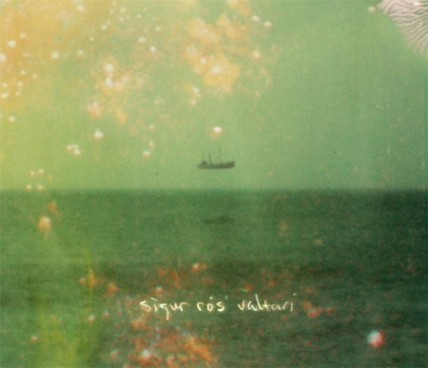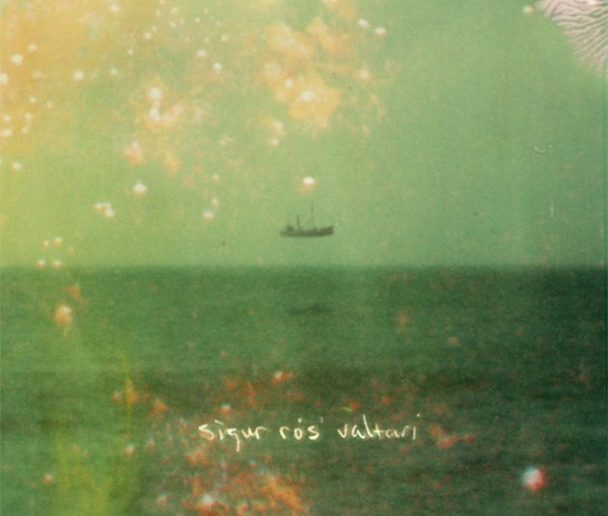
It’s been four years since Sigur Rós last released an album and four years since the band announced they would be taking an indefinite hiatus. Although the band have been relatively quiet on the recording front, they have kept themselves busy during this break releasing their first live album and soundtrack to the band’s second live-action film Inni, an accompaniment to the previously-released 2007 tour documentary Heima. While lead singer Jónsi has kept himself busy with two solo records and a collaboration album with partner Alex Somers, gossip of a new album being released in early 2010 circulated internet forums. It soon came to light that attempts to record a new album had been scrapped, but rumours began to resurface in 2011 as hints from the band indicated a more floaty and minimal record was about to be confirmed. It appears now the rumours were true as the Icelandic four-piece release their highly-anticipated sixth album Valtari this week.
The band have mentioned in previous interviews that they wanted to take a more experimental approach to Valtari and give it more of an abstract, ambient feel. On its first listen, it seems Jónsi’s ideas have developed from mind to studio, as the classical eruption of percussion and strings that were present in Sigur Ros’s earlier albums have been stripped back to the fundamentals and gives more of a nod to the band’s third
album ( ), whose hazy hue was focused on lighter, bleaker melodies.
Valtari is a step back from the band’s previous recordings, Takk and Með Suð I Eyrum Við Spilum Endalaust; the album’s minimalist approach is absent of the rapturous and harmonious anthems that made those two previous releases so critically acclaimed. It begins with the haunting Ég Anda, whose subtle bass line and scratchy guitar slowly build into an amplified melody, before lead singer Jonsi’s breathtaking chime-like falsetto vocals stream breathlessly over the piano chords. Its dreamy vibe continues at a steady pace before coming to an abrupt end, as we are then hit by a wall of echoey fuzz which leads us into the second track and first single from the album, Ekki Múkk. An underlay of scratchy static begins as a quiet hum breathlessly builds momentum, momentum that never seems to reach a peak as the cloudy piano slowly echoes out.
For me, the stand out track on this album is Varúð, which brings to life this seemly slow transition of ambience to the more euphoric, festive sound that this band have become known for producing. Its uplifting tempo is reminiscent of a simpler, less percussion-ridden Hoppipolla or Sæglópur; Jonsi’s vocals are almost saintly as the track snowballs into a howl of blissful ecstasy. This song feels like a beam of light streaming through a glass stained window, both light and heavy; choir-like vocals make this song sound almost spiritual as Jónsi wails through the chorus in effortless, airy euphoria while the heavy bass line of the verses and crashing drums bring us back down to earth and descend into the next track.
From then on, the rest the album flows into one: Rembihnútur is the shortest track on the album, and seems to end as soon as it starts. It chimes its way through an undertone of a muscular bass line, like a slowly moving mass, as its glitchy electronic drone effect mixed with the soft patter of piano carries the song into an intense climatic swell of heavy melodies. Dauðalogn – whose meaning transcribes into English as “death of calm,” a label almost too befitting to the tone of this track – is a melancholic hymn which creates an eerie, sombre atmopshere; the delicate choral backdrop gives it the air of a funeral march, but Jonsi’s pensive vocals give this ghostly track some much-needed warmth.
The last three remaining tracks are simple and pure instrumental pieces that lead us gently out of the album. Varðeldur streams straight on from Dauðalogn; we lose Jonsi’s vocals, but the gentle piano and tinkle of the glockenspiel make this track, continuing the translucent feel of the album. Dauðalogn brings back the simpler, hypnotic tones of Ég Anda and Ekki Mukk, while Valtari itself brings together a mixture of cut-up sounds and samples with fragile simplicity. Fjögur Píanó brings the record to a close, stripping back the layers of the previous two tracks to reveal a refined and simple piece of music that gears towards the distance.
Sigur Rós have pretty much trademarked the format of ethereal euphoric ambience, but have added their own daring experimental spin and added fragments of emotion. While some fans may feel Valtari lacks accessibility and epic pop energy, the aesthetics and intensity of this album will please the long-term fans. In essence, this a beautiful and well-crafted record with a blissful texture (thanks to the production and mastering, which is flawless), and has been given its own unique charm that will please listeners old and new.
Valtari is out now on Parlophone




